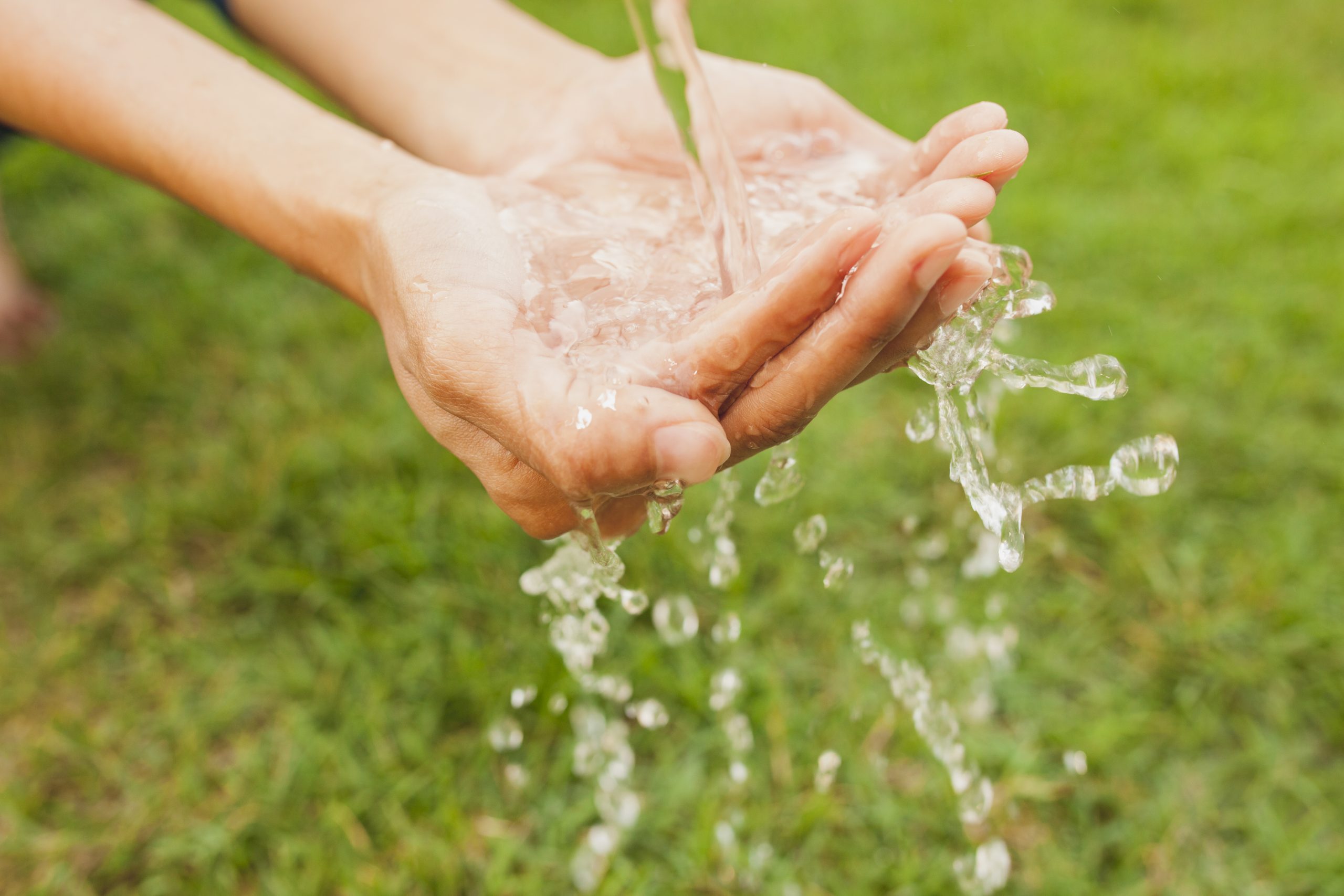THE IMPACT OF TREES ON WATER CONSERVATION EFFORTS IN UTAH
THE IMPACT OF TREES ON WATER CONSERVATION EFFORTS IN UTAH
Water conservation holds immense significance in arid regions like Utah due to the unique challenges posed by the climate and environmental conditions. Here’s an explanation of the significance of water conservation in arid regions:

1. Limited Water Resources: Arid regions typically receive low annual precipitation levels, and the available freshwater resources are scarce. In Utah, for example, the majority of the state is classified as semi-arid or arid, making water a precious and limited resource.
2. Drought Vulnerability: Arid regions are particularly vulnerable to drought conditions, which can lead to water shortages, reduced agricultural productivity, and economic impacts. Droughts are recurring phenomena, and conserving water is crucial for maintaining resilience during dry periods.
3. Ecological Impact: Water conservation is essential to protect the fragile ecosystems of arid regions. Many plant and animal species have adapted to survive in low-water environments. Excessive water use can disrupt these ecosystems and threaten biodiversity.
4. Urban Water Demand: In arid regions, urban populations rely heavily on water for residential and commercial purposes, including drinking, sanitation, irrigation, and industrial processes. Effective water conservation measures help meet the increasing demands of growing cities and towns.
5. Agricultural Needs: Agriculture is a significant water user in arid regions, and efficient water management practices are critical for sustaining crop production and livestock. Water conservation in agriculture ensures food security and economic stability.
6. Reducing Water Stress: Water stress occurs when the demand for water exceeds the available supply. Arid regions often experience water stress, which can lead to conflicts over water resources. Water conservation efforts help alleviate stress and reduce the potential for disputes.
7. Energy Savings: Water conservation can lead to energy savings. In arid regions, pumping and treating water for distribution and wastewater management consume substantial energy. Reducing water use decreases energy consumption and related greenhouse gas emissions.
8. Infrastructure Resilience: Conserving water helps prolong the lifespan of water infrastructure, such as dams, reservoirs, and pipelines. Overuse of water resources can lead to infrastructure deterioration and increased maintenance costs.
9. Financial Savings: Water conservation can result in cost savings for both individuals and municipalities. Reduced water consumption lowers water bills for residents and lowers operational costs for utilities.
10. Climate Change Adaptation: Arid regions are susceptible to the impacts of climate change, including altered precipitation patterns and increased temperatures. Water conservation measures help communities adapt to these changes by making the most of available water resources.
11. Sustainable Growth: Water conservation is essential for supporting sustainable economic and population growth in arid regions. It allows for responsible development and helps ensure that future generations will have access to adequate water supplies.
12. Long-Term Environmental Health: By conserving water, arid regions can protect their natural landscapes, preserve wetlands and riparian areas, and maintain the health of rivers and lakes. These ecosystems provide habitat for wildlife and contribute to recreational and cultural values.
In summary, water conservation is vital in arid regions like Utah to address the pressing challenges of limited water resources, drought vulnerability, and the need for sustainable growth. It is an essential component of responsible environmental stewardship, economic stability, and climate resilience in such regions.
Challenges of Water Scarcity and the Importance of Efficient Water Use:

1. Limited Freshwater Resources: One of the primary challenges of water scarcity is the limited availability of freshwater resources. Freshwater makes up only a small fraction of the Earth’s total water supply, and a significant portion of it is stored in glaciers and inaccessible underground aquifers.
2. Uneven Distribution: Water resources are unevenly distributed geographically. Some regions have abundant water sources, while others, particularly arid and semi-arid areas, face chronic water shortages.
3. Population Growth: The global population continues to grow, leading to increased water demand for drinking, sanitation, agriculture, and industrial processes. This population pressure exacerbates water scarcity in many regions.
4. Climate Change: Climate change is altering precipitation patterns, leading to prolonged droughts in some areas and more intense rainfall in others. These shifts in weather patterns further challenge water availability and management.
5. Wasteful Practices: Inefficient water use practices, such as water leakage in infrastructure, over-irrigation in agriculture, and excessive water consumption in households and industries, contribute to the depletion of available water resources.
6. Economic and Social Impact: Water scarcity can lead to economic losses in agriculture, industry, and tourism. It can also result in social disparities, with marginalized communities often suffering the most from inadequate access to clean water.
Importance of Efficient Water Use:
1. Resource Conservation: Efficient water use ensures that available water resources are used wisely and sustainably. It helps conserve freshwater for current and future generations.
2. Mitigating Water Stress: By reducing wasteful practices, efficient water use helps alleviate water stress in regions facing scarcity, improving overall water security.
3. Environmental Protection: Efficient water use benefits ecosystems and biodiversity by preserving the quantity and quality of water in rivers, lakes, and wetlands. This protection is essential for maintaining ecological balance.
4. Food Security: Agriculture is a major water consumer. Efficient irrigation and farming practices help sustain crop production, ensuring food security even in water-scarce regions.
5. Energy Efficiency: Water and energy are closely linked. Energy is required for water treatment, distribution, and heating. Using less water results in energy savings, which can reduce greenhouse gas emissions.
6. Cost Savings: Efficient water use can lead to cost savings for households, businesses, and governments. It lowers water bills, reduces maintenance costs for water infrastructure, and fosters economic stability.
7. Resilience to Climate Change: In the face of changing climate patterns, efficient water use practices help communities adapt to shifts in precipitation and temperature.
8. Water Quality: Efficient water use can reduce pollution risks. Less water use means fewer pollutants are transported into water bodies, enhancing water quality.
9. Long-Term Sustainability: Efficient water use is fundamental to achieving long-term sustainability in water management. It ensures that water resources are available for future generations and minimizes the risk of depletion.
10. Social Equity: Efficient water use can promote social equity by ensuring that water resources are distributed more equitably among communities, reducing disparities in access to clean water.
In conclusion, efficient water use is crucial for addressing the challenges of water scarcity, conserving vital freshwater resources, protecting the environment, and promoting economic and social well-being. It is a cornerstone of responsible water management and sustainable development in a world where water scarcity is an increasingly pressing issue.
Survival Strategies of Native and Drought-Tolerant Tree Species in Utah:
Native and drought-tolerant tree species in Utah have evolved various survival strategies to thrive in the arid and semi-arid climate of the region. These strategies enable them to conserve water, withstand long periods of drought, and adapt to the challenging environmental conditions. Here are some survival strategies commonly observed in native and drought-tolerant trees in Utah:

1. Deep Root Systems: Many native trees in Utah have developed deep taproot systems that penetrate deep into the soil to access groundwater sources. These deep roots enable them to reach moisture reserves even during extended dry periods.
2. Xerophytic Adaptations: Drought-tolerant trees exhibit xerophytic adaptations, including small or narrow leaves with reduced surface area for water loss through transpiration. Some trees have modified leaf structures, such as needle-like leaves or thick cuticles, to minimize water loss.
3. Water Storage Tissues: Certain tree species in Utah store water in specialized tissues, such as succulent stems or trunks. These tissues act as water reservoirs, allowing the tree to survive extended periods of drought by tapping into stored water reserves.
4. Dormancy: During extreme drought conditions, some trees enter a state of dormancy, shedding leaves or reducing metabolic activity to conserve water. This adaptation helps trees conserve energy and water until conditions improve.
5. Reduced Growth: Drought-tolerant trees often exhibit reduced growth rates during dry periods. Slower growth conserves energy and water resources, allowing the tree to allocate resources for survival rather than growth.
6. Shade Tolerance: Some native tree species in Utah are shade-tolerant, allowing them to thrive in understory conditions with reduced sunlight. This adaptation reduces water requirements and competition for sunlight.
7. Mycorrhizal Associations: Many drought-tolerant trees form symbiotic relationships with mycorrhizal fungi. These fungi extend the tree’s root system and enhance its ability to absorb water and nutrients from the soil.
8. Salt Tolerance: Some Utah trees, especially those in saline soils, have developed salt tolerance mechanisms to thrive in high-salinity environments. These mechanisms include salt exclusion or salt gland secretion.
9. Drought-Induced Leaf Shedding: During prolonged droughts, some tree species shed their leaves to reduce transpiration and water loss. This temporary adaptation helps trees survive until moisture returns.
10. Resource Allocation: Drought-tolerant trees allocate resources efficiently, prioritizing water and nutrients for essential functions like root growth and maintenance. They may sacrifice non-essential growth, such as new branches or leaves, to conserve resources.
11. Coppicing and Sprouting: Some native trees, like cottonwood and willow species, are capable of coppicing or sprouting from their root systems after disturbances. This allows them to recover quickly after drought, fire, or other environmental stresses.
12. Seed Banks: Certain tree species in Utah produce seeds with hard shells or protective coatings that can remain viable for extended periods in the soil. These seeds can germinate when favorable conditions return.
These survival strategies highlight the remarkable adaptability of native and drought-tolerant trees in Utah. Their ability to withstand water scarcity is essential for maintaining ecosystems, supporting wildlife, and contributing to the overall ecological resilience of the region, especially in the face of increasing climate variability and arid conditions.
About Murray, Utah
Murray is a city situated on the Wasatch Front in the core of Salt Lake Valley in the U.S. state of Utah. Named for territorial governor Eli Murray, it is the state's fourteenth largest city. According to the 2020 census, Murray had a population of 50,637. Murray shares borders with Taylorsville, Holladay, South Salt Lake and West Jordan, Utah. Once teeming with heavy industry, Murray's industrial sector now has little trace and has been replaced by major mercantile sectors. Known for its central location in Salt Lake County, Murray has been called the Hub of Salt Lake County. Unlike most of its neighboring communities, Murray operates its own police, fire, power, water, library, and parks and recreation departments and has its own school district. While maintaining many of its own services, Murray has one of the lowest city tax rates in the state.
Neighborhoods in Murray, Utah
Murray Oakes, Grant Park, Southwood Park, Murray Park, Murray Park Restrooms, Willow Pond Park, Neighborhood Veterinary Care
Things To Do in Murray, Utah
Bus Stops in Murray, Utah to Truco Services, Inc.
Bus Stop in Murray Central Station (Bay C) Murray, Utah to Truco Services, Inc.
Bus Stop in State St @ 4801 S Murray, Utah to Truco Services, Inc.
Bus Stop in Murray North Station Murray, Utah to Truco Services, Inc.
Bus Stop in State St @ 4949 S Murray, Utah to Truco Services, Inc.
Bus Stop in Murray Central Frontrunner/Trax Station Murray, Utah to Truco Services, Inc.
Bus Stop in Murray Blvd / Vine St (SB) Murray, Utah to Truco Services, Inc.
Bus Stop in State St @ 3925 S Murray, Utah to Truco Services, Inc.
Bus Stop in State St @ 4824 S Murray, Utah to Truco Services, Inc.
Bus Stop in State St @ 5223 S Murray, Utah to Truco Services, Inc.
Bus Stop in Murray Blvd / Allendale Dr (NB) Murray, Utah to Truco Services, Inc.
Bus Stop in Murray Blvd @ 5039 S Murray, Utah to Truco Services, Inc.
Bus Stop in State St @ 4721 S Murray, Utah to Truco Services, Inc.
Driving Directions in Murray, Utah to Truco Services, Inc.
Driving Directions from Woodruff Tree Trimming and Removal to 4640 Commerce Dr, Murray, UT 84107, USA
Driving Directions from Reliable Tree Care to 4640 Commerce Dr, Murray, UT 84107, USA
Driving Directions from Tree Pro-Tech to 4640 Commerce Dr, Murray, UT 84107, USA
Driving Directions from Prestige Tree And Landscape to 4640 Commerce Dr, Murray, UT 84107, USA
Driving Directions from Excellence Tree & Landscape to 4640 Commerce Dr, Murray, UT 84107, USA
Driving Directions from Amen Trees to 4640 Commerce Dr, Murray, UT 84107, USA
Driving Directions from Tim's Tree Care to 4640 Commerce Dr, Murray, UT 84107, USA
Driving Directions from Jordan Tree Service - Murray to 4640 Commerce Dr, Murray, UT 84107, USA
Driving Directions from Arbor Works to 4640 Commerce Dr, Murray, UT 84107, USA
Driving Directions from Diamond Tree Experts to 4640 Commerce Dr, Murray, UT 84107, USA
Driving Directions from Green Tree Arborist to 4640 Commerce Dr, Murray, UT 84107, USA
Driving Directions from TruCo Services to 4640 Commerce Dr, Murray, UT 84107, USA
Reviews for Truco Services, Inc. Murray, Utah
Emily Abercrombie
We had a great experience with TruCo! They were well priced, responsive and prompt. Michael was a pleasure to work with and gave us advice on which plants to put in where we took out our ugly old shrubs. I would highly recommend this company!!!
Michelle Turpin
TruCo Services gets 5 stars from us for customer service. We experienced a few issues with their services this last year and Rob Eccles in senior management, stepped in and immediately handled our issues. He was very committed to making sure they understood our expectations and would execute to make us happy.
Siobhan Billingsley
I work for a property management company and have the pleasure of working with Rob at a community in Sandy. He has been incredible to work with and always responds in a timely manner. He knows all the homeowners by name and address and is aware of all the "problem" areas when it comes to sprinklers. I never have to worry about following up with him because he always reaches out to provide me with an update. If you're looking to work with someone who takes pride in their job, is professional, and can solve the worst landscaping problems thrown your way, Rob is your guy. Thank you, Rob for all you do!
Jaime S.
We have used Truco at 2 of the complexes we manage, they have been great to work with. Good quality service, outstanding customer service with good communication. That's hard to find these days. I highly recommend them. Travis has been awesome to work with.
Jerusha Smart
We use TruCo for a majority of our properties and our home. While other landscaping companies we use come and go for various reasons like cost, communication issues, work performance, etc., TruCo is always consistent in price and work. Also, Rob is the best.